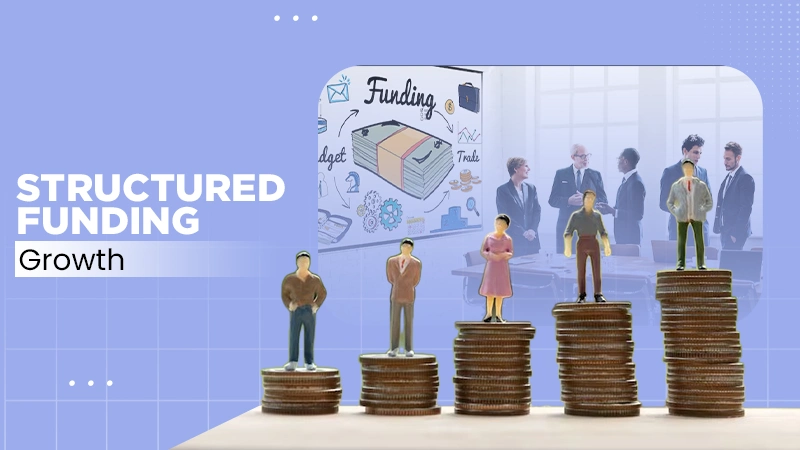Blockchain is a digital ledger that can store data across a huge network of computers.
Who doesn’t know about the effects of blockchain? It has affected and transformed various sectors of this world, and is continuing it. Earlier, it was known to empower cryptocurrencies only, but now it has evolved and grown its branches to various financial processes.
In the financial world, speed, efficiency, and accuracy are everything. Security defines most of its success. But still, some traditional financial structures struggle with manual delays and errors, and increasing costs due to high dependency on mediators and outdated infrastructures.
To tackle this, blockchain technology has brought effective solutions to it, and has transformed the way banks, fintech firms, and global institutions used to manage their payments and data. With its transparency and automation, blockchain has streamlined financial processes.
Continue reading to discover how blockchain solutions are streamlining financial processes. Understand the way it has optimized processes and powered operations with privacy and custom tokens.
Key Takeaways
- Blockchain helps financial businesses to streamline their operations and cut costs.
- Introduction of tokens reduces an extra step to wait for allowance from banks and third-party organizations.
- Apart from enhancing privacy and security, it makes every transaction transparent to improve the bond between organizations and customers.
Understanding Financial Process Optimization
Optimization of financial processes means enhancing and making financial tasks better, using various technologies and strategies – from invoicing and payments to settlements and audits.
The earlier approach was very manual and based on intermediaries. Every step used to require various manual entries and structured approvals from seniors. This used to result in delays and more chances of mistakes.
Blockchain has optimized it by automating these steps. It uses a shared ledger in which every transaction is recorded and verified across a network. Fewer manual processes are involved, and every user can view the same data with real-time monitoring.
Earlier, payment reconciliation used to take days, and now it can get done in seconds. It not only reduces time consumption but also brings accuracy at low costs. Blockchain has helped organizations cut down on extra costs in the middle layers and function smartly.
Security and Compliance in Blockchain Applications
In finance, security is a factor that can’t be compromised, and blockchain masters it. Every transaction made with the help of blockchain is encrypted and connected to the previous one. This, in turn, creates a temper-proof chain of records. It simply alters the entire chain; any information cannot be extracted without changing the complete chain.
Blockchain ensures follow-ups of strict compliance and regulation while keeping a hand on transparency. Audit trails can be maintained easily, and compliance data can be verified; the organization just needs a secure blockchain. Further security updates and data integrity will be maintained automatically.
Benefits of Scalable Infrastructure
Scalability is one of the major benefits blockchain brings. The highly scalable infrastructure that it offers can manage plenty of transactions at a time.
Above this, it offers some advanced features, such as layer-2 solutions and sharding. It helps to break down the workload and results in faster performance without putting your data security at risk.
It’s real-time settlements with enhanced customer satisfaction are very attractive for fintech and banks that have to manage millions of transactions daily. These features are essential for growth in a digital economy.
Powering Financial Operations with Custom Tokens
The introduction of custom tokens has completely revolutionized transactions. Blockchain has enabled transactions to be done with custom tokens that represent digital assets such as currency and stocks. This has reduced a step of waiting time for bank approvals and third-party permissions.
These advanced financial agreements reduce paperwork and speed up the payment with accuracy. For example, in trade finance, tokens can act as valuable assets that can be shared within seconds between clients and parties. Such a structure makes transactions faster, smarter, and more efficient.
Privacy Features for Institutions
Apart from the transactional transparency, organizations also require privacy for their own sensitive content. This is also resolved by blockchain with data encryption, private networks, and zero-knowledge proof.
This restricted access ensures encrypted and verified participants, ensuring only core members to check and approve transactions. Although zero-knowledge proofs allow users to verify data without private information.
This process of quick transactions while managing regulatory compliance and keeping clients’ information private cannot be achieved with traditional systems.
Conclusion
Blockchain technology has made financial operations smoother and more efficient. It removes inefficiencies and strengthens security and trust between organizations and customers.
This is the right time to integrate blockchain to meet the modern demands and scale systems and digitalize. With tokenization, security features, and automation, it builds a flawless and cost-effective financial ecosystem.




